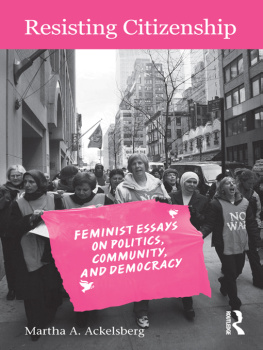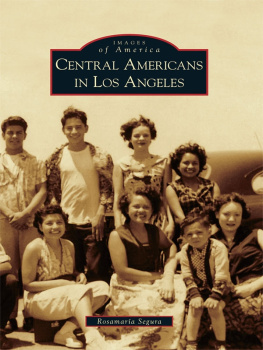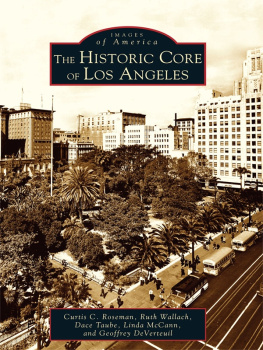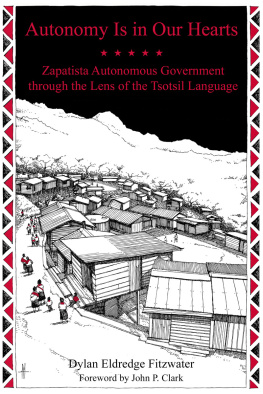CHICAN@ ARTIVISTAS
Music, Community, and Transborder Tactics in East Los Angeles
MARTHA GONZALEZ

University of Texas Press
Austin
Unless otherwise specified, all photos are from the authors personal collection.
Copyright 2020 by the University of Texas Press
All rights reserved
First edition, 2020
Requests for permission to reproduce material from this work should be sent to: Permissions
University of Texas Press
P.O. Box 7819
Austin, TX 787137819
utpress.utexas.edu/rp-form
Library of Congress Cataloging-in-Publication Data
Names: Gonzalez, Martha, author.
Title: Chican@ artivistas : music, community, and transborder tactics in East Los Angeles / Martha Gonzalez.
Description: First edition. | Austin : University of Texas Press, 2020. | Includes bibliographical references and index.
Identifiers: LCCN 2019052089
ISBN 978-1-4773-2112-6 (cloth)
ISBN 978-1-4773-2113-3 (paperback)
ISBN 978-1-4773-2138-6 (ebook)
ISBN 978-1-4773-2139-3 (ebook other)
Subjects: LCSH: MusicPolitical aspectsCaliforniaLos Angeles. | Mexican American womenPolitical activityCaliforniaLos Angeles. | Gonzalez, Martha.
Classification: LCC ML3917.U6 G69 2020 | DDC 306.4/8420979494dc23
LC record available at https://lccn.loc.gov/2019052089
doi:10.7560/321126
This work is dedicated to all of the Eastlos Chican@ artivistas, especially my partner, Quetzal Flores. Although this book bears my name, it was a collaborative effort. We struggled, thrived, and theorized these moments together and alongside our community.
CONTENTS
ACKNOWLEDGMENTS
I am indebted to many people for the completion of this project. No one can do it alone. My deepest gratitude goes to my academic advisors, Michelle Habell-Palln, Angela B. Ginorio, Mara Elena Garca, Shannon Dudley, and Marisol Berros-Miranda, for their invaluable advice and commitment to my work. Thank you to the Department of Gender, Women, and Sexuality Studies and to Priti Ramamurthy at the University of Washington for introducing me to feminist development thought. I extend my immense gratitude to mentors across the country who have advised and encouraged me throughout, including Olga Njera-Ramrez, Antonia Castaeda, Russell Rodriguez, George Lipsitz, Josh Kun, Richard Mora, Steven Loza, Angela Ginorio, Deborah Vargas, Luis Alvarez, Daniel Sheehy, and Ruben Hernandez-De Leon.
I walked alongside many Eastlos artivistas and other local and translocal community members throughout the years. The people who were most instrumental in shaping the energy and discourse of this project were Rudy Ramrez, Felicia La Fe Montes, Marisol Torres and all of Mujeres de Maiz, Jo Anna Mixpe Ley, Laura Palomares, Suyapa Portillo, Aztlan Underground, the Blues Experiment, Miguel Rodriguez, Gabriel Tenorio, Omar Ramirez, Jose Ramirez, Jacob Hernandez, Juan Perez, Tylana Enomoto, Rocio Marron, Rosa Marta Zarate, Sarah Rosencrantz, Shirley Alvarado del Aguila, Marco Loera, Aloe Blacc, Csar Castro, Xochi Flores, Roberto Tata Flores, Carolina Sarmiento, Luis Sarmiento, and the Sarmiento family. In Mexico: El Maestro Gilberto Gutirrez, Ramn Gutirrez, Wendy Cao Romero, Tacho Utrera, Patricio Hidalgo, Zenen Zeferino, Annahi Hernandez, Rub Oseguera Rueda, Laura Rebolloso, Kali Nio, and the rest of the Entre Mujeres familia.
Thank you to my colleagues and intellectual comadres Micaela Daz-Snchez, Sara P. Daz, Mnica de la Torre, Manoucheka Celeste, and the rest of the WOCC sisters for the unwavering support. Women Who Rock graduate seminar feedback sessions under the direction of Michelle Habell-Palln also provided professional guidance over the years; thank you especially to Tiffany Lopez, Sherrie Tucker, Daphne Brooks, Sonnet Retman, Miriam Bartha, and Maylei Blackwell. Beyond the academy I am grateful to the Pacific Northwest community of fandangueros from the Seattle Fandango Project.
My gratitude also extends to the University of Texas Press team, including Kerry Webb, Lynne Ferguson, Andrew Hnatow, and freelance editor Abby Webber, for their guidance and patience.
I have received generous institutional funding over the years from the University of Washington Graduate Opportunities and Minority Achievement Program (GOMAP), the Ford Foundation Dissertation Fellowship (2012), the FulbrightGarca Robles Fellowship (2008), the Woodrow Wilson Career Enhancement Fellowship (2016), and the Faculty Success Program (2019). I could not have finished this book without the support of Scripps College, Dean Amy Marcus-Newhall, and all of my colegas in the Intercollegiate Department of Chicana/o Latina/o Studies, especially Toms Summers Sandoval and Rita Cano Alcala.
Most of all I am indebted to my family, who have seen me through it all, especially my brother, Gabriel Gonzalez. My sisters, Claudia Miranda and Karla Benavidez, helped our families stay together, and my nieces and nephews continue the legacy of music and art in our family. Thank you to my mother-in-law, Consuelo Valdez. A special thank you to my mother, Martha Romero Hernandez, who has advised me throughout my life but mostly demonstrated to me the power of hope and perseverance through her own skill set, survival strategies, and general life outlook.
Y por fin, gracias a mi nio hermoso, Sandino Gonzalez-Flores, who has trekked the many roads with us and who will no doubt continue the legacy of music and social justice in our family. Lastly, thank you to my partner and my love, Quetzal Flores, who encouraged my venture into academia but continues to remind me that my first home will always be in music.
Introduction
We need teoras that will enable us to interpret what happens in the world, that will explain how and why we relate to certain people in specific ways.... We need theories that will point out ways to maneuver between our particular experiences and the necessity of forming our own categories and theoretical models for the patterns we uncover. We need theories that examine the implications of situations and look at whats behind them.
GLORIA ANZALDA, Borderlands/La Frontera
So the circumstances of our lives and our labor enable what we can know.
PRITI RAMAMURTHY, lecture at the University of Washington, 2011
I have traveled the world as a professional musician. Experiencing music in many fronts, sites, and social locations has demonstrated to me that music is understood and engaged in a number of ways. I have had music experiences that as a performer were oppressive and have left imprints of shame and trauma in my memory. But there have also been moments of hope. Music in this sense was inspiring, a conduit of freedom and a malleable tool for those who envision social change. These moments, in particular, have allowed me to see how music could be a liberatory process, a deliberate act of love, and a source of empowerment for self and community.
My labor as a musician over the years enables what I know and thus what I recount and theorize in this book. It is an autoethnographic account of varied music moments experienced on a professional stage, panhandling on street corners, and in the throes of community organizing amid the many struggles and deep trenches of social movement. Importantly, the varied experiences I recount and theorize in this book altered how I conceive and practice the craft at present. Most of all, it demonstrates how over time a music practitioner like me experienced a fundamental change in philosophy.
Theorizing music through an autoethnographic lens, beginning with early childhood memories, will elucidate a range of methods, social theories, and transformations that happen along the way in various social settings. Drawing from postcolonial, Chicana, black feminist, and performance theory,
Next page






